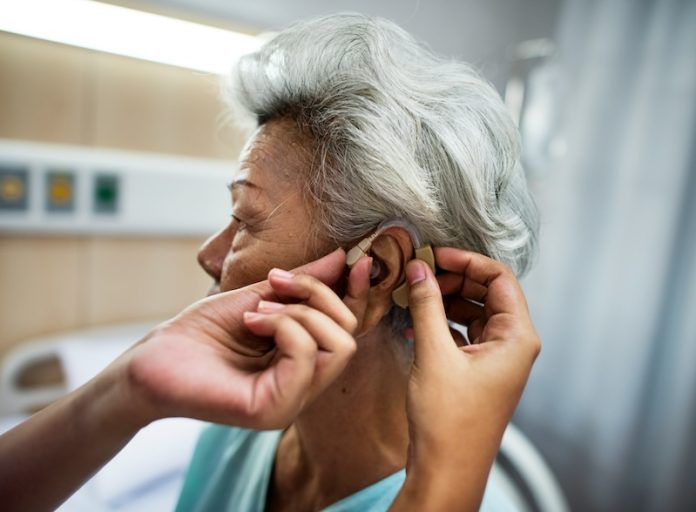
New research from Lancaster University suggests that hearing impairment might be connected to a greater risk of developing Parkinson’s disease. This study is among the first to explore whether sensory problems, like hearing loss, could either increase the likelihood of Parkinson’s or act as an early warning sign for the condition.
Parkinson’s disease is the fastest-growing neurological condition worldwide. According to Parkinson’s UK, about 153,000 people in the UK are currently living with the disease, and it’s estimated that 1 in 37 people in the UK will be diagnosed with Parkinson’s during their lifetime.
The study, titled “Speech-in-noise hearing impairment is associated with increased risk of Parkinson’s: A UK Biobank Analysis,” was recently published in Parkinsonism and Related Disorders.
The researchers examined data from the UK Biobank, a massive biomedical database that includes information from 500,000 participants across the UK.
The team analyzed hearing test results from 159,395 individuals who had no history of Parkinson’s at the time of the assessment.
The tests measured participants’ ability to understand speech in noisy environments, which is a key indicator of hearing function. Over an average follow-up of 14 years, 810 participants were diagnosed with Parkinson’s.
The findings revealed a significant connection between hearing impairment and Parkinson’s. For every 10-decibel increase in baseline hearing loss, the risk of developing Parkinson’s rose by 57%. This suggests that hearing difficulties may play a larger role in the development or early detection of the disease than previously thought.
Dr. Megan Readman, who led the study and is an ESRC Postdoctoral Research Fellow in Lancaster University’s Department of Psychology, highlighted the importance of these findings.
“This is one of the first studies to investigate whether hearing impairments might increase the risk of Parkinson’s or signal its early stages,” she said. Dr. Readman also emphasized that addressing hearing loss might help improve patient care for those diagnosed with Parkinson’s.
However, she cautioned that the relationship between hearing loss and Parkinson’s remains unclear. “We don’t yet know whether hearing loss can directly cause Parkinson’s or if both conditions stem from a common underlying factor,” she explained. Further research is needed to determine whether this link is causal or merely correlational.
Professor Christopher Plack, another co-author, added that hearing loss is increasingly recognized as being linked to other health problems. “Understanding these connections is crucial for improving care and quality of life for affected individuals,” he noted.
The study’s authors believe their findings could influence future Parkinson’s care and prevention strategies. By identifying sensory impairments like hearing loss as potential risk factors, researchers aim to develop better approaches for early diagnosis and intervention.
Professor Trevor Crawford emphasized the broader context of this work, noting that it is part of a decade-long effort by Lancaster University and its collaborators to study neurodegenerative diseases.
The study also included contributions from researchers Yang Wang, Fang Wan, Sally Linkenauger, and Ian Fairman, who lives with both Parkinson’s and hearing loss.
This research underscores the importance of considering hearing function in the diagnosis and treatment of Parkinson’s. While it’s too early to determine how the two conditions are linked, addressing hearing impairment could enhance patient care and possibly even delay the onset of Parkinson’s.
Further investigation into the biological connection between hearing loss and Parkinson’s is essential to unlock new possibilities for prevention and management.
If you care about hearing loss, please read studies about antibiotic drug that can lead to hearing loss, and whether you should get an hearing aid or see a specialist.
If you care about dementia, please read studies about how the Mediterranean diet could protect your brain health, and these antioxidants could help reduce dementia risk.
The research findings can be found in Parkinsonism and Related Disorders.
Copyright © 2025 Knowridge Science Report. All rights reserved.








Leave a Comment